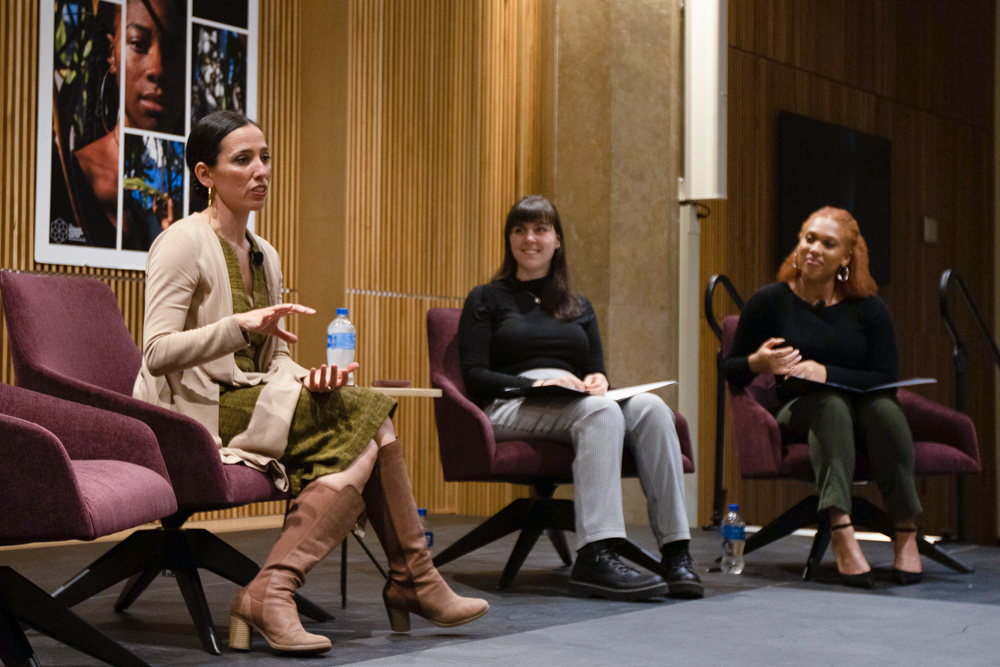
Massachusetts State Senator Sonia Chang-Díaz discussed the future of the pandemic, the state’s plan to become carbon neutral by 2050 and the housing crisis at an open forum Monday night.
Boston University Student Government hosted the forum, with support from BU Initiative on Cities — a center for urban related research and teaching — at the Howard Thurman Center.
Students had the opportunity to either submit questions beforehand while registering for the event or ask their questions at the end of the forum.
Chang-Díaz — who is the first Latina and Asian American elected to the State Senate — launched a bid for Massachusetts governor last June. In her opening remarks, she explained why she initially ran for public office 13 years ago.
“What I’ve seen firsthand is that we still have too many folks in our state governments who are more concerned with holding on to their power rather than doing something with it,” she said at the forum. “It is exactly why I would say it is so hard to live and work and raise a family.”
Massachusetts currently seeks to reach carbon neutrality by 2050, according to legislation which Chang-Díaz said she was proud to vote on. Though she called it a “laudable goal,” Chang-Díaz nonetheless said she thinks it is “not fast enough.”
“We need to go as fast as we possibly can. We have to use every tool in our toolbox,” she said, addressing the dozens of students in the room. “It is our moral obligation to not hand you a planet on fire.”
To this effect, Chang-Díaz pointed to her plan, “A Green New Deal for Massachusetts,” which calls for the state to turn entirely to renewable energy by 2030, expand and electrify a fare-free public transit system, as well as create thousands of jobs in the renewable energy sector.
“We have to make sure that communities that have been at the front of the line for the harms of pollution and climate change are at the front of the line for the economic benefits of the transition to clean energy,” she said.
Regarding homelessness in the state, Chang-Díaz said staff shortages at shelters contribute to the problem — and noted mental health and substance abuse disorders form part of it.
In Massachusetts, nearly 18,000 people are currently experiencing homelessness, many of them living in shelters, according to Jan. 2020 data from the United States Interagency Council on Homelessness.
“Even if we plunge $100 million into the system right now, there’s not enough workforce ready to do all of that,” she said. “There’s not enough human beings who are in the workforce ready to go tomorrow to meet the need.”
Damian Vladimiroff, a freshman in the College of General Studies, asked Chang-Díaz about her opinion on current COVID-19 mandates and vaccinations.
Chang-Díaz responded saying the pandemic revealed society’s inequities, chiefly in public health.
“For me as governor, equity will be the cornerstone of everything that I do,” Chang-Díaz said. “Not just in moments of crisis, but in moments in between when it is unsexy.”
Kaushar Barejiya, a freshman at the University of Massachusetts, Boston, asked Chang-Díaz about the influx of luxury apartment buildings and its negative impact on neighborhoods like Dorchester and Roxbury.
Barejiya specifically referenced the Dorchester Bay City project — a five billion dollar plan to transform 36 acres of land in Columbia Point.
In response, Chang-Díaz said she is not familiar enough with the project, but new housing should target those in “extreme” need.
“We need more communities in Massachusetts to be willing to have, in their communities, lower-income and middle-income and what’s called ‘workforce’ housing, rather than just the high-income ones,” Chang-Díaz said.
Chang-Díaz said she supports Mayor Michelle Wu’s policy of trying to create fare-free transit services in Boston, adding she would expand the policy to the state.
“Transportation is the single biggest greenhouse gas emitting sector in our economy by far, right? And so every person who’s riding the T is doing a service to the Commonwealth,” she said.
Chang-Díaz said she would eliminate fares for MBTA and RTA buses immediately as part of her first budget proposal as governor.
In her closing remarks, Chang-Díaz encouraged the audience to seek a career in public service and to help volunteer for her campaign.
“We are a grassroots campaign, a scrappy insurgent campaign running against the establishment,” she said. “You guys can be difference-makers in this race.”























































































































